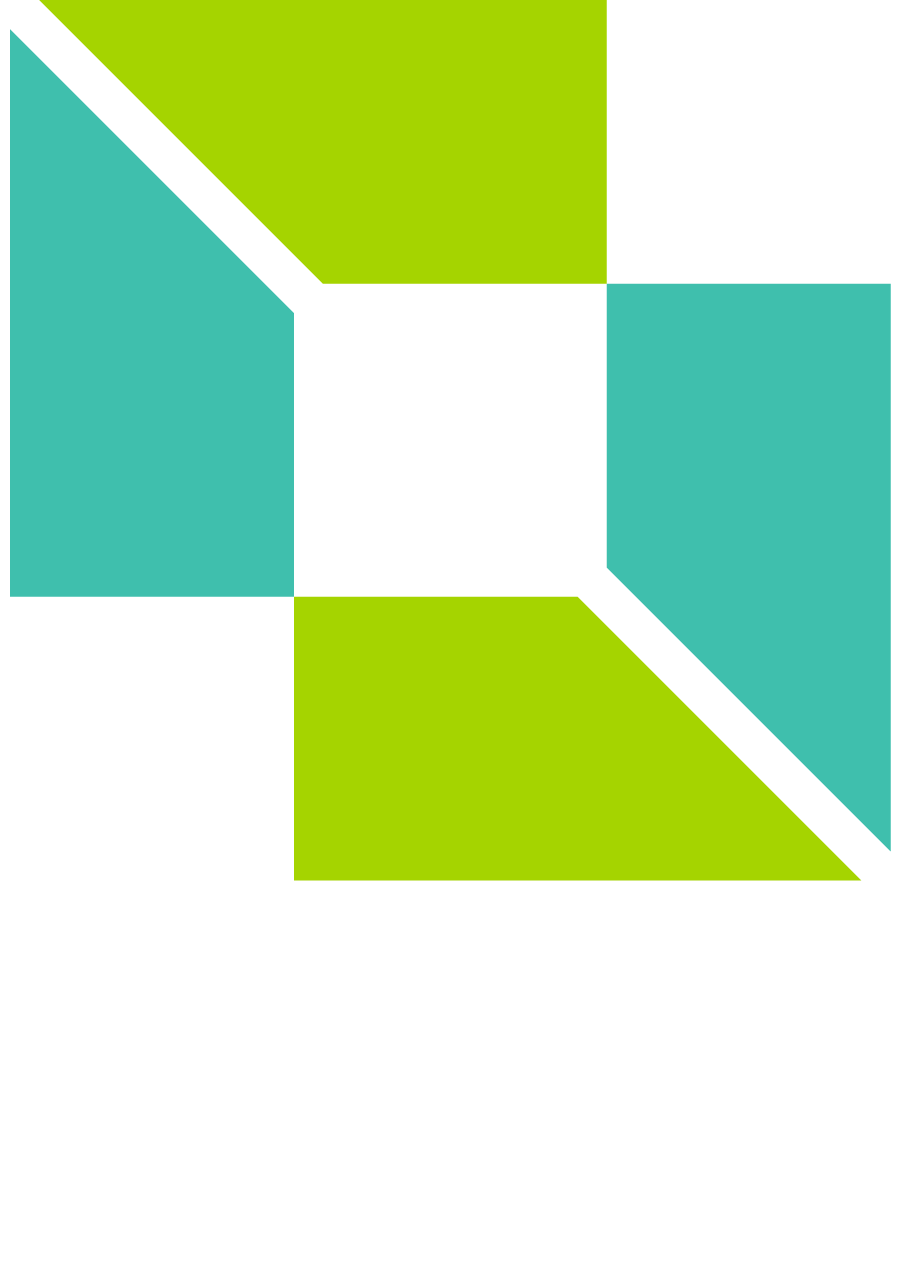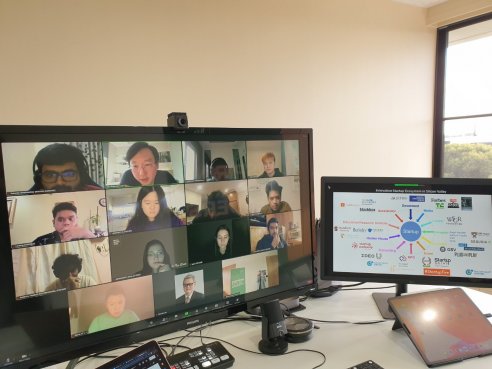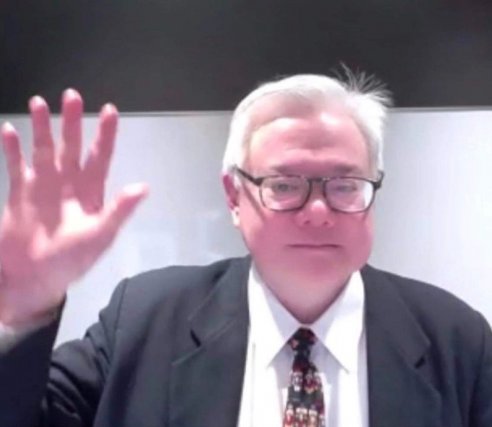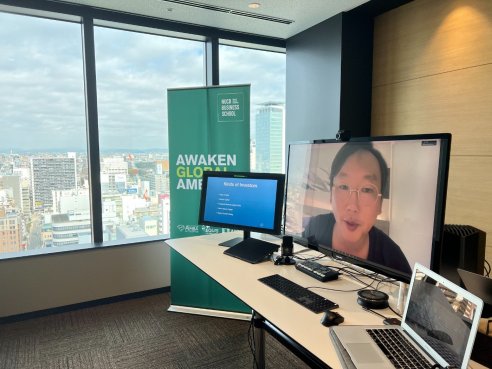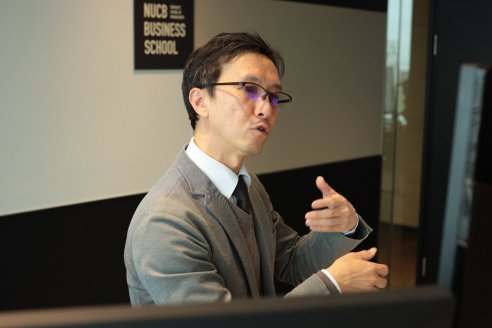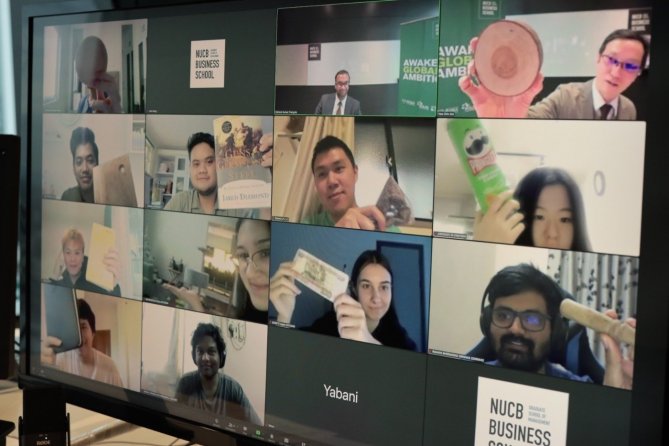The Entrepreneurial Thinking program is underway: Startup Ecosystems and Perfect Pitches
The AY2021 Winter Program, Entrepreneurial Thinking, kicked off this Monday, January 24th, after a rousing orientation session held the weekend prior.
The ability of entrepreneurs (or intrapreneurs) to think and act differently is often painted as a mysterious skill exhibited by those with an innate talent, or from an environment that spurs innovation. This program aims to demystify entrepreneurial thinking by defining a model synergizing dynamic capabilities making better use of resources, in tandem with technology for innovative ways (whether they are disruptive or non-disruptive), and behavioral tools to gain new insights and to leverage them for ultimately capturing new values.
Day 1
The program kicked off with a presentation from Mr. John Kojiro Moriwaka, who is a recognized Japanese multi-entrepreneur, columnist, and public speaker.
Laying the groundwork for program participants to understand the sphere in which the entrepreneur operates, John discussed the wide-range of actors in the startup ecosystem, including government, media, incubators, accelerators, banks, lawyer, investors, events, NPOs, consulting, and educational/research institutes, and explained how these forces and organizations influence the process of starting a business and interact with the entrepreneur. He provided examples of startup ecosystems around the world, both famous and upcoming ones, and their own particularities in their own markets.
The Day 1 presentation was followed by a lecture by Prof. Ricardo Lim (of NUCB Business School, our Graduate School of Management), who started with a comparison between entrepreneurs and the Black Knight of Monty Python’s Quest for the Holy Grail. Amongst the common traits of well-known entrepreneurs, he counted persistence, determination, as well as bravery and optimism as the traits that drove their success. As part of being entrepreneurial, they seek to have freedom and autonomy, to build relationships and partnerships, imagining possibilities to pivot and act on arising opportunities. His case focused on the insurtech company Lemonade, and analyzed how they disrupted the insurance industry.
Day 2
Day 2 began with John Moriwaka once again, who held a pitch workshop for his second session. As our program on entrepreneurship culminates in a final group project involving each team making a pitch to the faculty members acting as angel investors, the added value that John could bring to our participants made his second appearance in lieu of a cultural enrichment experience (which is usually provided during our seasonal programs) a must.
John expertly explained the various types of investors and their motivations in order to instruct participants on the reasoning behind how a pitch must be constructed accordingly in order to be effective. 7 elements were introduced as core for developing a solid and convincing pitch: problem that is to be solved, the solution with a realistic prototype, market size, traction, the unique insight, business model and the team itself. It was especially important to note that a lot of the same tactics are used to appeal to customers in developing a marketing strategy.
Prof. Goi Hoe Chin (of NUCB Business School) followed the workshop with a lecture on inn ovative application of resources. Participants were taken through the business model canvas: analyzing the design, how it works, and building upon an existing model based on a case of a student-based venture in Indonesia. Introducing the concept of dynamic capability, Prof. Goi asked participants to hold up an item made using wood to then reflect on how resources can be leveraged to create new value.
At the end of the session, students reviewed the case they had learned in their groups, and developed and presented a pitch for the Indonesian start-up case they had studied. This pitch served to implement their learnings from the morning’s pitch workshop and provided a pitch practice to refine their skills in developing and pitching for the final group project!

 Download
Download
 Infosession
Infosession
 Application
Application
 Open Campus
Open Campus
